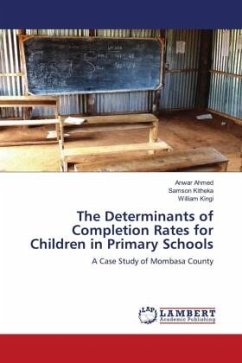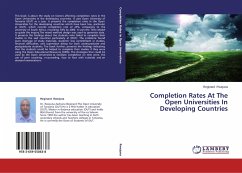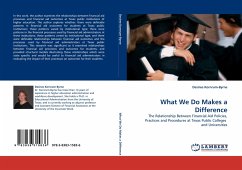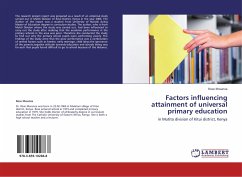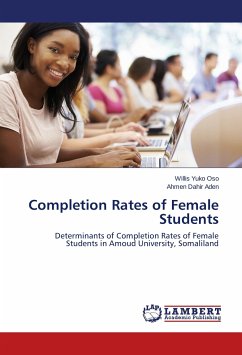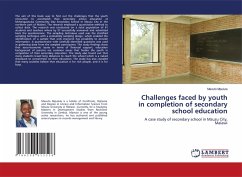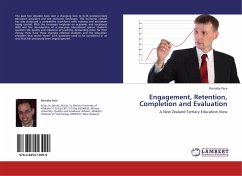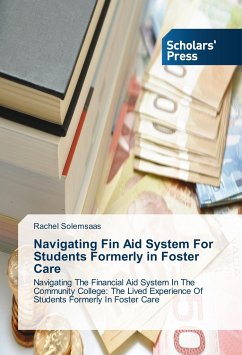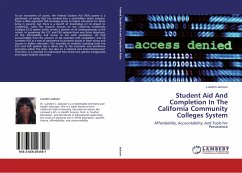
Student Aid And Completion In The California Community Colleges System
Affordability, Accountability, And Tools For Persistence
Versandkostenfrei!
Versandfertig in 6-10 Tagen
45,99 €
inkl. MwSt.

PAYBACK Punkte
23 °P sammeln!
As an instrument of access, the Federal Student Aid (FSA) system is a patchwork of policy that has evolved into a multi-billion dollar industry. There is little argument FSA increases access to higher education for those living in poverty, but there is a dearth of knowledge on its impact to completion rates. This research focuses on the California Community Colleges (CCC) system which enrolls a quarter of all undergraduates in the nation. In examining the CCC and FSA systems there was three objectives: (1) link affordability and access to aid with completion, (2) find accountability from the a...
As an instrument of access, the Federal Student Aid (FSA) system is a patchwork of policy that has evolved into a multi-billion dollar industry. There is little argument FSA increases access to higher education for those living in poverty, but there is a dearth of knowledge on its impact to completion rates. This research focuses on the California Community Colleges (CCC) system which enrolls a quarter of all undergraduates in the nation. In examining the CCC and FSA systems there was three objectives: (1) link affordability and access to aid with completion, (2) find accountability from the amount of aid awarded with completion, and (3) correlate FSA as a tool of persistence to promote equity in both access and success in higher education. The enormity of students accessing both the CCC and FSA systems has a direct link to the economic and workforce outcomes within the state, but also on a national and international level. Therefore, it is essential to understand how these two systems amalgamate and impact student outcomes.




